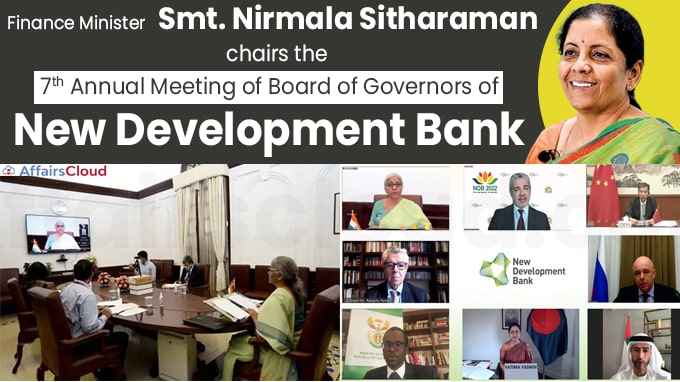
The Ministry of Finance (MoF) has announced a new Government Guarantee Policy (GGP), which replaces a 12-year-old policy and intends to incorporate all changes in General Financial Rules (GFR) and financial policies.
The need for a new GGP has become essential as the volume of sovereign guarantees undertaken during a financial year is capped under the Fiscal Responsibility and Budget Management (FRBM) Act of 2003.
- The Act states that the Central Government will not provide guarantees aggregating to an amount more than 0.5 % of GDP in any financial year.
How Does the Process Function?
i.The Ministries/Departments are required to submit an initial proposal using the designated portal and then send a physical copy to the budget division for processing.
ii.Through a guarantee portal, approval or disapproval will be communicated to Ministries and Departments. The Ministry or Department may enter into a guarantee agreement once it has been approved.
iii. The applicable guarantee fee will be paid by the Ministry/Department on the day the agreement is signed and on April 1 of every year afterwards. They will regularly update information in the platform, such as loan drawn and repayments, among other things. In addition, they must provide a review report to the budget division.
Categorisation of Guarantee Fee
i.Based on the risk assessment, the guarantee fee is divided into two categories – Category A & Category B.
- The fee for category ‘A’ will be 0.5-0.6 % depending on the tenor, while it will be 0.7-0.9 % for category ‘B’.
ii.The government guarantee aims to increase the viability of projects or activities carried out by central government entities that have considerable social and economic advantages.
- It also allows the Central Public Sector Undertakings (CPSUs) to raise funds at lower interest rates or on better terms.
iii. Its objective is to achieve the requirement when a sovereign guarantee is required for concessional loans to CPSUs from bilateral or multilateral institutions.
Categories Of Guarantees Provided by The Government
A government guarantee is usually issued in one of five categories.
Category 1: It covers principal and interest repayment guarantees provided to the RBI, other banks, and industrial and financial institutions; cash credit facilities; financing of seasonal agricultural operations; and/or supplying working capital to companies, corporations, cooperative societies, and banks.
Category 2: It establishes guarantees for repayment of share capital, payment of a minimum annual dividend, and repayment of bonds, loans, and debentures issued or raised by statutory corporations and CPSUs.
Category 3: It provides guarantees given in accordance with agreements entered into by the Government of India with international financial institutions, foreign lending agencies, foreign governments, contractors, suppliers, consultants, and others, for repayment of principal, interest, and/or commitment charges on loans, and/or for payment against supplies of material and equipment.
Category 4: These are Counter guarantees to banks in consideration for the banks issuing Letters of Credit or authorisation to foreign suppliers for goods supplied or services delivered.
Category 5: These are related to guarantees issued to railways for prompt and timely payment of dues by central government companies or corporations.
Significant Policy Specifications
i.The policy reiterates that because guarantees create contingent liability, they should be examined in the same way as a loan proposal, taking into account the borrower’s creditworthiness.
- It also mandates considering the magnitude of the risks sought to be covered by a sovereign guarantee, the terms of the borrowing, the justification and public purpose to be served, the probability of invocation and the possible costs of such liabilities.
ii.If the entity/organization fails to meet the requirements of the guarantee, the government will be obligated to pay.
About the Ministry of finance (MoF):
Union Minister of Finance – Nirmala Sitharaman (Rajya Sabha – Karnataka)
Departments under the MoF – Department of Expenditure; Department of Economic Affairs; Department of Revenue; Department of Financial Services; Department of Investment and Public Asset Management; Department of Public Enterprises.




